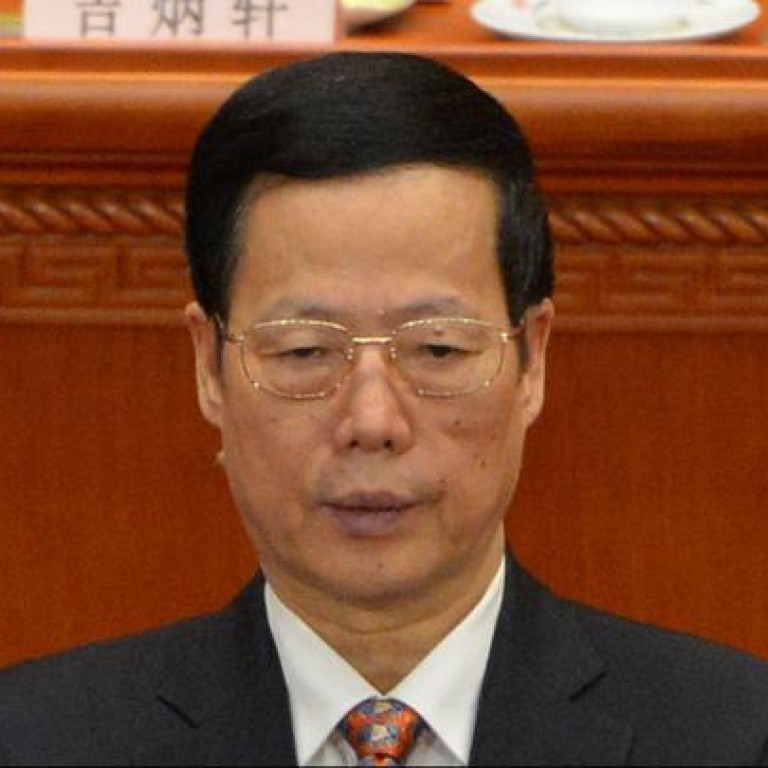
Guangdong is positioned to lead the next phase of China's quality growth
Winston Mok says it must move its industries up the value chain, focusing on design and innovation
With China's new leadership now in place, Guangdong appears poised for change. Zhang Gaoli and Wang Yang, the two recently appointed vice-premiers who spent part of their careers in Guangdong, have both advocated sweeping changes.
While discussing China's slowing economic growth, Zhang said recently that quality growth is more important than growth in size. Wang had pushed for radical economic restructuring for Guangdong to sustain growth in a higher-cost environment, proposing a plan to "empty the cage and let the right birds in".
Further, the province's new chief, Hu Chunhua, who is seen as a rising star groomed for a top position, has called on Guangdong to reinvent itself like a phoenix.
While there is no dispute on the imperative of quality growth, the key issue is how such restructuring may take place. During Zhang's time in Guangdong, I participated in and contributed to developing its long-term economic development strategy. Guangdong has long since surpassed those goals, attributable more to a liberalised environment than superb planning.
Guangdong now dominates several light industries globally (for example, lighting and microwave ovens) and has developed a world-class ceramic tile industry. Its three new key development zones - Qianhai, Hengqin and Nansha - all have strong emphases in the service sector.
Guangdong has provided the liberalised environment - which allows global know-how, international capital and nationwide human resources to effectively work together - to provide a key engine for China's growth. With the largest and most open regional economy, Guangdong can lead the next stage of its quality growth.
South Korea's example is instructive. The first two stages of its economic development - labour intensive and capital intensive - were what Guangdong had gone through. For the next phase, the province must continue to emulate its neighbour and focus on knowledge and design.
With the fastest broadband networks in the world, Korea competes through relentless innovation. Guangdong must provide the same environment through even greater openness. After all, Zhang has said the government should not control and intervene where control is not needed.
Together and in concert with Hong Kong, Guangdong has advantages such as broader international networks and better access to financial markets. Guangdong may find the greatest opportunity for its consumer-oriented industries in China's large and growing domestic market. Instead of manufacturing, Guangdong should refocus on design, marketing and logistics. Branding and distribution nationwide should be a priority.
Industrial powerhouses like Switzerland achieved their status through evolutionary, rather than abrupt, changes. So, too, should Guangdong.
For instance, Foshan's world-class ceramic tile industry developed from its traditional craft in pottery and assimilated Italian know-how. Rather than throwing away "traditional" industries, Guangdong should upgrade them to become quality leaders, technological innovators and world-class brand owners.
Traditional industries like textile, ceramics and lighting can all be high-technology and high-value-added. Rather than switching industries, Guangdong may stick with what it's got while moving upscale.
Making iPhones earns little profit for an assembly plant. But a high-end Italian lighting piece is valued at more than one hundred times a mass-market product and priced higher than a Chinese-made sub-compact car - and with a lot less steel. To upgrade its industries, Guangdong should develop world-class industrial design degree programmes. The government may also help establish design centres.
There is no reason why Guangdong cannot up its game in its key sectors. Take the lighting industry. Zhongshan is already the world leader in mass-market lighting. Despite the scale of the industry, it is not yet a quality leader and lacks global brands. With consolidation, the industry may be upgraded through quality and design innovation.
Importantly, the light bulb/tube segment is still dominated by global majors such as GE, Osram and Philips. China would need to develop a bulb/tube brand that rivals the global giants, or consider acquiring one of them. Zhongshan's lighting industry and Dongguan's LED industry may become more integrated through alliances or mergers and acquisitions.
For Guangdong's next stage, it may be too risky to try to change ducklings into peacocks.
And there's no need to.
The plain-looking ducklings in Guangdong's backyard are really swans-in-waiting. The government should focus on providing the best ecosystem for their growth through appropriate facilitation, promotion and capacity building for industries.
In this way, the ducklings will flourish, and one day become swans that take flight, far and wide.

